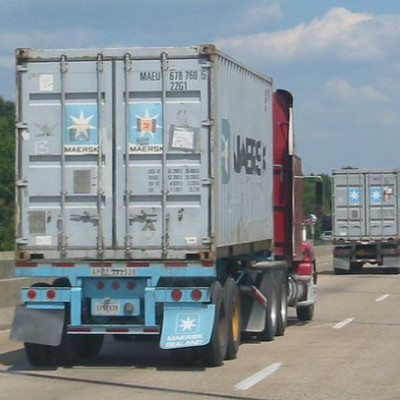November 4, 2015
October 2015 at Policy Integrity: Clean Power Plan News; A Domestic Windfall from Foreign Climate Action; In the News: Arctic Offshore Leasing Put on Ice; Energy Policy Conference; Comments on Truck GHG Emissions and NY Energy Policy
-
Clean Power Plan News
In Congress and elsewhere, Policy Integrity has continued to offer legal analysis of the Clean Power Plan, which was formally published in October. Richard Revesz testified at a recent House subcommittee hearing on the Clean Power Plan’s legality. His testimony focused on why the rule is well-justified under the Clean Air Act and the Constitution. Revesz and Denise Grab discussed similar issues in a recent op-ed in The Hill. On the day the Clean Power Plan was formally published, Policy Integrity hosted a media briefing on legal issues and state support for the rule, with Tom Miller, Attorney General of Iowa, and Michael Myers, Assistant Attorney General of New York. On November 17 in Washington, D.C., Revesz will participate in a panel discussion on legal challenges to the Clean Power Plan (registration details here).
-
A Domestic Windfall from Foreign Climate Action: New Report
Global actions on climate change have already helped the United States avoid more than $200 billion in direct economic damage, according to a new report from Policy Integrity’s Peter Howard and Jason Schwartz. The report, Foreign Action, Domestic Windfall: The U.S. Economy Stands to Gain Trillions from Foreign Climate Action, uses monetized damage estimates from the government’s “social cost of carbon” metric to calculate the benefits of avoided carbon emissions to the United States. Featuring a foreward from Nobel Prize-winning economist Kenneth Arrow, this report asserts that there is a clear economic incentive for the United States to support global cooperation at the Paris climate talks. “Peter Howard and Jason Schwartz have done a great and useful service in demonstrating the great extent to which the United States has already benefited, and how much more it will gain, from the carbon emission restrictions of other countries,” Arrow writes in his foreword.
-
In the News: Arctic Offshore Leasing Put on Ice
The Department of the Interior (DOI) recently canceled all Arctic offshore lease sales in its current program – a shift that may have been influenced by Policy Integrity’s recent lawsuit and advocacy efforts. In an op-ed published in The Hill entitled Arctic Offshore Leasing Put on Ice, Jayni Hein and Michael Livermore commended DOI’s decision and encouraged further steps. In addition to protecting a fragile region, the DOI’s decision “makes good economic sense: It reflects the value of delay in light of the significant economic, environmental and social uncertainties associated with offshore drilling in the Arctic,” wrote Hein and Livermore. DOI’s recent draft proposed program for offshore leasing, which covers 2017 to 2022, also included, for the first time, a robust discussion of option value, using language that closely resembles the arguments Policy Integrity has repeatedly made to the agency.
-
Energy Policy Conference
On October 27, Policy Integrity hosted “A Path Forward on Energy Policy,” a daylong event featuring noted experts from government, the private sector, and academia. Steve Corneli of NRG Energy kicked off the event with a discussion of challenges and emerging opportunities in the energy sector. High-ranking policymakers from California, Maine, and New York shared their states’ visions for a sustainable and stable energy future (as reported in Climate Central); and innovators from Microsoft, the Carbon Disclosure Project, the City of Boulder, Colorado, and Yale University discussed new arenas for carbon pricing. Finally, former Republican Congressman Bob Inglis and Wall Street Journal Energy Reporter Amy Harder ended the day with an insightful discussion about partisanship and energy policy. Video of the event is available here.
-
Comments on Truck GHG Emissions and NY Energy Policy
We recently submitted two sets of comments to the EPA and National Highway Traffic Safety Administration on their greenhouse gas standards for trucks. In joint comments with EDF, NRDC, and the Union of Concerned Scientists, we encouraged the use of the social cost of carbon and offered suggestions for further refinements to the metric. We also offered support for the social cost of methane as a tool in regulatory impact analyses. In separate comments, we advocated for improved consumer labels, consideration of upstream emissions, modeling improvements, and a stringency that maximizes net benefits. We also recently submitted comments on New York State’s Reforming the Energy Vision (REV) initiative. We suggested that the New York State Public Service Commission should modify its performance-based regulation approach to better account for environmental factors and improve incentive structures; update its distributed energy resource compensation approach; better incorporate environmental factors into electricity rates; and include more dynamic and cost-reflective tariffs in its rate design reforms.




